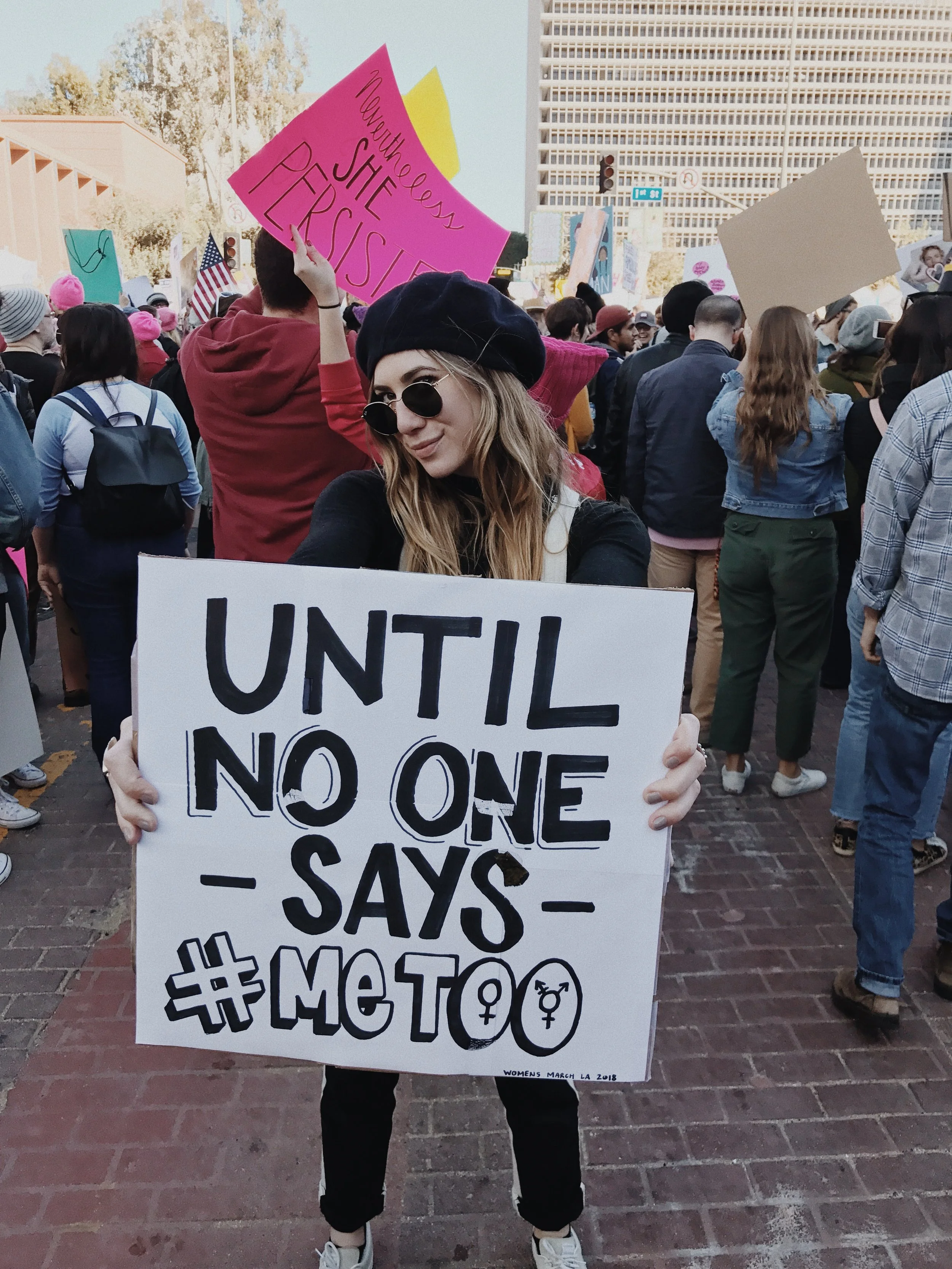Like Grace
Last weekend Aziz Ansari was hit, and the story gave the Internet a panic attack. If you don’t know what I’m talking about, or even if you do, I urge you to read anonymous “Grace’s” direct account at Babe.net before borrowing an opinion. In short, Grace spilled her date night with comedian and actor, Mr. Ansari, deeming it the “worst night of her life.” What started as a dinner date ended in tears as he, apparently, ignored verbal and non-verbal cues of rejection, asking, “where can I fuck you” repeatedly.
The panic split in three major ways. First, why did Grace go inside and subsequently, why didn’t she leave (sooner than she eventually did). Second, Ansari is no mind reader and Gracie can fend for herself, leave the “Master of None” star alone. And lastly, #MeToo is in danger when we lose sight of starlit rape cases - and let’s not pretend this is that.
I have taken the week to really consider these three versions of Grace’s story, and I am continuing to work through my feelings. The weight of this story is in no way lost on me, and I cannot pretend that I am a mystic with all the answers to an individual’s worst case scenario. But I am ready to share my two cents on these three angles, and I hope that if you are a student of these schools of thought, you will hear me out.
Grace went inside the apartment. If this is an issue for you, you’re missing the point of the story. Yeah, Aziz plays a really woke-ass-nerdy-bae on his TV show, so it’s hardly worth the ink blot that he may not be exactly that, live on Saturday night. Grace’s night doesn’t end at the door post, her date reportedly disrespects “chill out” messages by continuously asking for oral sex and sticking his fingers in her mouth with a quick shot to the vagina. He pulls an all too classic, grab her hand and it put it directly on your dick because, clearly, she can’t seem to find it herself.
The issue is not walking into the apartment, being at the apartment, or leaving the apartment. The issue is the uncondoned expectation that a woman merely existing means she is fair game. Asking why Grace went to her date’s apartment is like asking why women walk to the supermarket. She needed milk, damnit. And just because she was in the dairy aisle doesn’t mean she was also after eggs.
Consent can be blurry. It is not black and white. There is an enormous gray area and I invite you to better acquaint yourself with your right hand if being intimate with another person is going to be tough on you. I know, that’s really hard to come to terms with. Especially for a guy who’s just trying to get laid. Like, why do you think he paid for dinner, right?
I don’t think Grace went into Ansari’s apartment hoping to play parcheesi, like the inner 13-year-old Jenna Rink, but that doesn’t mean she gave a bright green light to cross railroad tracks either. There is a limit. And sometimes you don’t know what that is until you are in the moment and realize, you know what, I am not ready to take this step with you. At that moment, sex is pulled off the table. Any time she feels like it, she can throw it back on. Ansari’s only responsibility is to respect that.
Huffington Post editor Emma Gray said it so fabulously I have to borrow her words:
If someone extends a social invitation that you don’t want to accept, instead of saying "No, I don’t want to do that," you might say, "That sounds great, but I think I made plans with a friend," or, "Not sure I’ll make it." These same kind of communication tactics come up in sexual situations. Language like, "It’s getting late," or "maybe later," or "next time," often serves as a stand-in for a hard "no."
A woman saying, “Let’s relax, let’s chill,” while pulling away sends about as clear a message as “Netflix and chill” from a frat boy as he shuts the computer. These scenarios run free from “yes means yes and no means no,” but it doesn’t collapse the sentiment, and it definitely doesn’t require a powerful sorceress or mind reader.
Consent has not so much changed as it is evolving, finally acknowledging the most often used gray space. It’s working to protect the women who have long been held passive victim to aggressive perpetrators. So yes, it is certainly complicated. But that’s what makes it so important, and no surprise that Grace’s story has exploded in critique.
This version of #MeToo intimidates us because, finally, it’s all about us. It’s not the hypothetical “your daughter” scenario, but the experience we have all literally had. If this is Grace’s version of #MeToo, then that puts me on the spectrum, and how the hell am I supposed to swallow that.
Yes, this is unlike Harvey Weinstein, the Big Bad of of the story - and I don’t think anyone is confused on the difference. But wake up and look around the forest, because it’s loaded with with wolves. They come in different sizes and attack at different rates. Some may even learn to kneel if you pet them enough. But they are raised wild no less, and brushing the little guys off as dogs only diservices a movement that champions women to be their own heros.
Aziz Ansari did not rape Grace. No one is claiming that. As consumers of what did happen, I feel it is unfair to accuse the #MeToo movement of failing because assault before rape matters too. It’s like, ugh he didn’t make it to the punchline! How can you be disappointed by that?
One of the few things women have long controlled are the stories we tell ourselves. If you have been in Grace’s shoes, you were likely conditioned to write this off as a bad date or bad sex from a guy who turned out to be an asshole. Or maybe you shouldn’t have worn that low-cut a top. That short a dress. Drank that much wine. That’s what many felt reading this story, and I’m sorry they did. Because this experience was likely remnant of their own.
#MeToo cannot start and end at the worst stories told finally bubbling over. It has to dig into the reality of women like you, women like me. Women like Grace.
x Dani Pinkus







